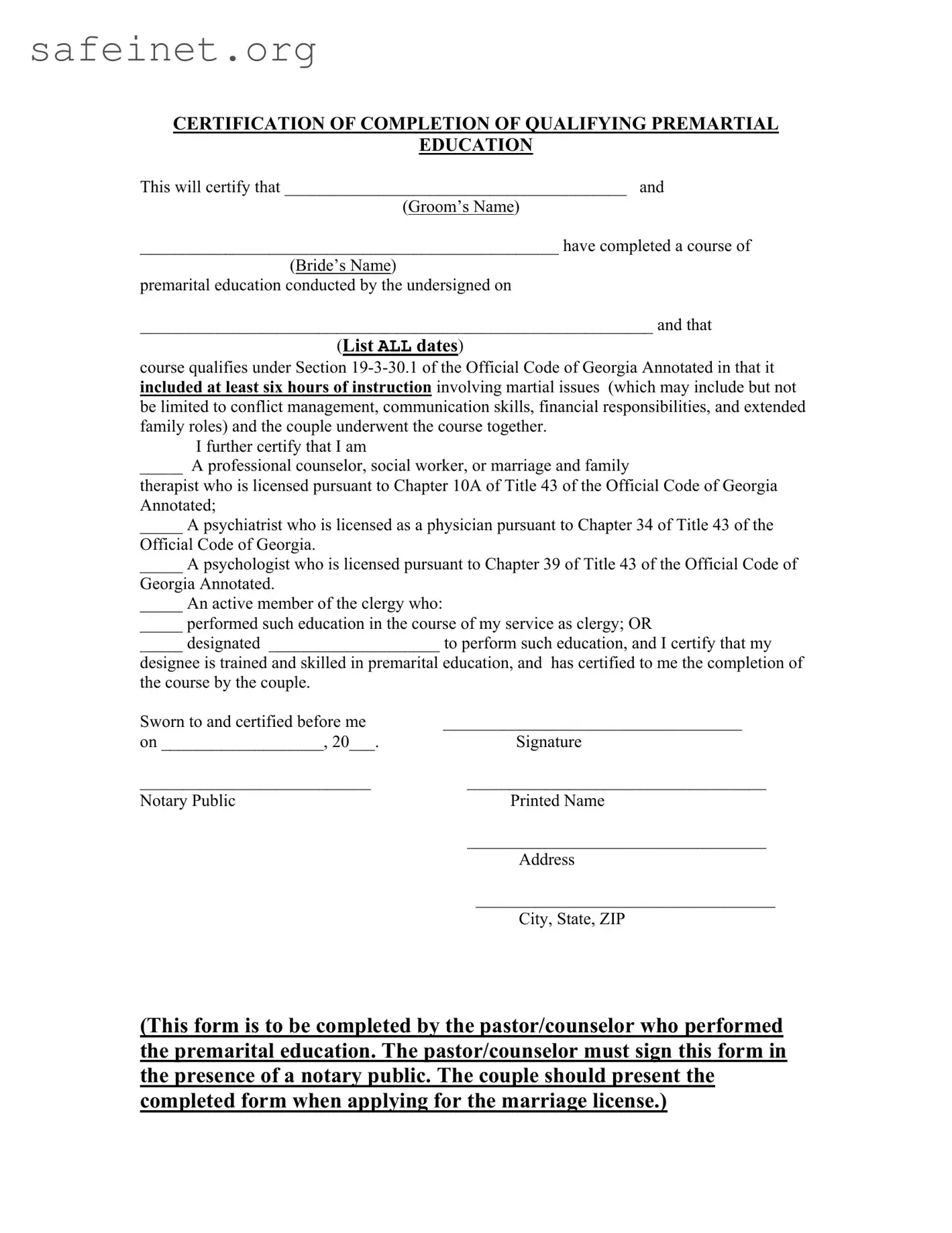What is the Completion of Marriage form?
The Completion of Marriage form serves as a certification that a couple has successfully completed a premarital education course. This document is crucial as it verifies to the state that the couple participated in relevant instruction related to marriage, such as communication skills and conflict management. This certification may be needed when applying for a marriage license, ensuring that couples are prepared for the challenges of married life.
Who must complete the Completion of Marriage form?
The form must be completed by the person who conducted the premarital education course. This could be a licensed professional counselor, social worker, marriage and family therapist, psychiatrist, psychologist, or an active member of the clergy. Each of these professionals must certify that the couple has completed their course together and that it meets the state requirements.
What qualifications must the course instructor have?
The instructor of the premarital education course must hold a valid license in their respective field, whether that be counseling, social work, psychology, or medicine. Alternatively, if the instructor is a member of the clergy, they must either provide the education themselves or designate someone who is trained to do so. This ensures that the education provided is of high quality and relevant to preparing for marriage.
How long must the premarital education course be?
The course must include a minimum of six hours of instruction covering various marital issues. These topics can include communication skills, conflict management, financial responsibilities, and the roles of extended family. This breadth of content helps couples prepare for different aspects of their relationship.
What should the couple do with the completed form?
Once the form is completed and signed by the instructor in the presence of a notary public, the couple should present it when applying for their marriage license. This documentation is often required by state officials to verify that the couple has fulfilled the premarital education requirement.
Does the form need to be notarized?
Yes, the Completion of Marriage form must be notarized. The presence of a notary public adds an official layer of credibility to the document, ensuring that the signatures are legitimate and the information is accurate. This step is essential in legal contexts, especially when dealing with marriage licenses.
What if the couple does not complete the premarital education course?
If the couple does not complete the required premarital education course, they may be ineligible to obtain a marriage license in certain jurisdictions. State requirements can vary, so it is important for couples to check their local regulations beforehand.
Can the premarital education course be conducted online?
Yes, many programs offer online premarital education courses. However, it's crucial to ensure that these courses meet the state’s standards. Couples should verify that the course provides at least six hours of content and covers the required topics before enrolling.
What happens if the couple has completed the course but the instructor does not complete the form?
Without the Completion of Marriage form properly filled out and signed by the instructor, the couple may face delays or issues acquiring their marriage license. It’s important for couples to follow up with their instructor to ensure that this certification is completed in a timely manner.
Where can couples find approved premarital education courses?
Couples can look for approved premarital education courses through local counseling centers, community organizations, or religious institutions. Many states also provide online resources, making it easier for couples to find suitable programs that fulfill the certification requirements.
